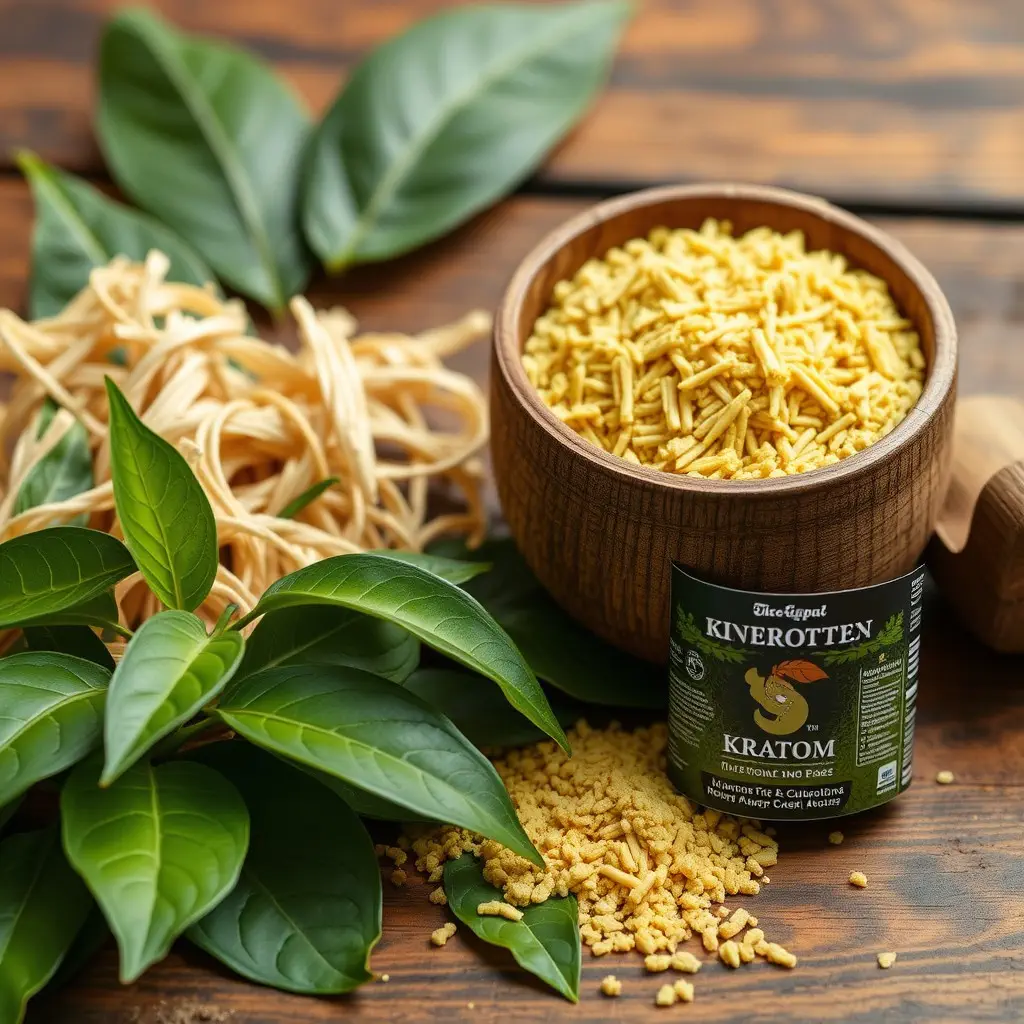The article examines the potential benefits and risks associated with Kratom, a natural supplement that may enhance focus, endurance, and physical performance, as used by individuals aiming to meet the Army's stringent fitness standards. Kratom's stimulant and sedative properties could contribute to mental fortitude, pain management, and energy levels, which are crucial for military training. However, it's important to note that Kratom can produce opiate-like compounds on drug tests, potentially leading to disciplinary action within the military due to its classification as a controlled substance. The article emphasizes the necessity for Army personnel to be fully informed about the legal implications and potential career impact of using Kratom. It advises extreme caution and recommends consultation with healthcare professionals or military physicians before incorporating Kratom into any fitness regimen, given the complexities surrounding its use. A key point is that while the Army does test for kratom, understanding its effects and implications within the military framework is essential for anyone considering its use as part of their mental toughness training. The article concludes by advocating for a focus on legitimate mental resilience training methods that comply with military guidelines, ensuring soldiers' readiness and compliance without the risk of policy infractions.
Embarking on a journey to fortify mental resilience and physical endurance is pivotal for anyone striving to meet the stringent demands of military fitness standards. This article delves into the integration of kratom as a strategy to bolster mental toughness during rigorous training regimens, with a special focus on its potential impact on army fitness benchmarks. As we explore ‘Mastering Mental Fortitude: Integrating Kratom into Your Training Regimen,’ readers will gain insights into how this botanical supplement can enhance cognitive resilience and overall endurance. Moreover, ‘The Role of Kratom in Enhancing Cognitive Resilience and Physical Endurance for Aspiring Military Personnel’ offers a comprehensive look at the biological mechanisms at play. It is crucial to navigate the complexities of kratom use within the context of army testing policies—a topic addressed in ‘Navigating the Boundaries: Understanding the Implications of Kratom Use and Army Testing Policies.’ Does the army test for kratom? This question is central to understanding the legal and practical considerations for those aiming to serve. Join us as we unravel these aspects, ensuring that aspiring military personnel are well-informed about the role and limitations of kratom in their preparatory endeavors.
- Mastering Mental Fortitude: Integrating Kratom into Your Training Regimen with a Focus on Army Fitness Standards
- The Role of Kratom in Enhancing Cognitive Resilience and Physical Endurance for Aspiring Military Personnel
Mastering Mental Fortitude: Integrating Kratom into Your Training Regimen with a Focus on Army Fitness Standards

Mastering mental fortitude is a critical aspect for individuals aiming to meet the stringent fitness standards set by the military, particularly in the Army. Integrating Kratom into your training regimen can be a strategic approach to enhance focus, endurance, and overall physical performance. Kratom, a natural supplement derived from the leaves of the Mitragyna speciosa tree, is known for its stimulant and sedative effects, which can be beneficial in managing pain, increasing energy levels, and promoting mental clarity. For those who are subject to drug testing, such as Army personnel, it’s important to be aware that the presence of Kratom may lead to a positive result on standard drug screens. Therefore, if considering its use, it’s advisable to be fully informed about the legal implications and the potential impact on your career.
When incorporating Kratom into your training, it’s essential to approach its use with caution. The optimal dosage and strain depend on individual physiology and the specific fitness goals you aim to achieve. For instance, strains like Maeng Da and Bali are often favored for their invigorating effects, which can be particularly useful in pushing through intense workouts that simulate Army fitness tests. It’s also crucial to adhere to safety guidelines and consult with healthcare professionals or a military physician before adding Kratom to your regimen. Regular monitoring of your performance and adjusting your training accordingly will help ensure that you are leveraging the benefits of Kratom without compromising your health or your standing in the military. Does the Army test for Kratom? While it’s not typically a specific item on standard drug tests, the metabolites found in Kratom leaves can trigger positive results for opiates. As such, soldiers must exercise due diligence and understand the potential consequences of its use within the military context.

Integrating mental toughness strategies with kratom training can be a nuanced approach, particularly when considering the various regulations and testing procedures within organizations such as the military. For instance, the question of whether the army tests for kratom is pertinent for individuals who are considering incorporating this herbal supplement into their regimen. Kratom, derived from the Mitragyna speciosa tree, has been traditionally used for its stimulating and sedative effects, which can potentially aid in mental endurance and performance. However, it’s crucial to note that the military maintains stringent drug policies, and kratom is not an exception. A positive test for kratom can lead to disciplinary action or disqualification, as it is treated similarly to other controlled substances. Therefore, any individual engaging in kratom training must ensure they are fully aware of the guidelines and legalities surrounding its use within their specific context. Additionally, mental toughness strategies should focus on proven techniques such as cognitive restructuring, goal setting, visualization, and consistent physical conditioning, which align with regulations and promote overall well-being without the risk of violating policies. By adhering to these strategies and understanding the implications of kratom within military frameworks, soldiers can enhance their mental resilience in a manner that is both compliant and effective for their service duties.
The Role of Kratom in Enhancing Cognitive Resilience and Physical Endurance for Aspiring Military Personnel

Kratom, a plant from Southeast Asia, has gained attention within the military community for its potential to enhance both cognitive resilience and physical endurance. Traditionally used in traditional medicine, kratom contains alkaloids that can affect the brain, potentially leading to increased energy levels, heightened alertness, and improved mood. These effects may be particularly beneficial for aspiring military personnel who undergo rigorous training and must maintain mental fortitude amidst physically demanding activities. The role of kratom in mental toughness strategies is multifaceted; it can help individuals sustain concentration during extended operations and handle the stresses of combat scenarios. However, it’s crucial to approach the use of kratom with caution, as its effects can be powerful and its legality varies by jurisdiction. Additionally, the interaction of kratom with other substances or medications can have unpredictable outcomes, necessitating careful consideration by healthcare professionals.
In the context of military training, the discussion around kratom’s role is complex. Does the army test for kratom? This question pertains to the military’s stance on its use. While some branches of the armed forces may have strict policies against it, others are exploring its potential benefits within the framework of research and regulation. It’s important for individuals interested in incorporating kratom into their training regimen to be aware of the latest guidelines and directives from their respective military branches. Prospective military personnel must balance the pursuit of cognitive resilience and physical endurance with adherence to military policies, ensuring that any supplements used are aligned with the ethical and legal standards of the military institution. Ultimately, the decision to use kratom should be made in consultation with medical experts and commanding officers who can provide guidance on its implications for mental toughness training.
Incorporating kratom into one’s training regimen, particularly with the aim of meeting Army fitness standards, can be a double-edged sword. As explored in this article, kratom has potential benefits for mental toughness strategies, enhancing cognitive resilience and physical endurance—key factors for those striving to serve in the military. However, it is imperative to approach this topic with caution. The use of kratom and its legality, especially within military institutions, raises important questions such as “Does the army test for kratom?” and how its presence might affect one’s military career. Prospective soldiers must weigh the potential benefits against the risks and ensure they adhere to all regulations set forth by their respective branches of service. Ultimately, the decision to integrate kratom into training should be made with a comprehensive understanding of its effects, legal considerations, and the strict standards expected by the military.






